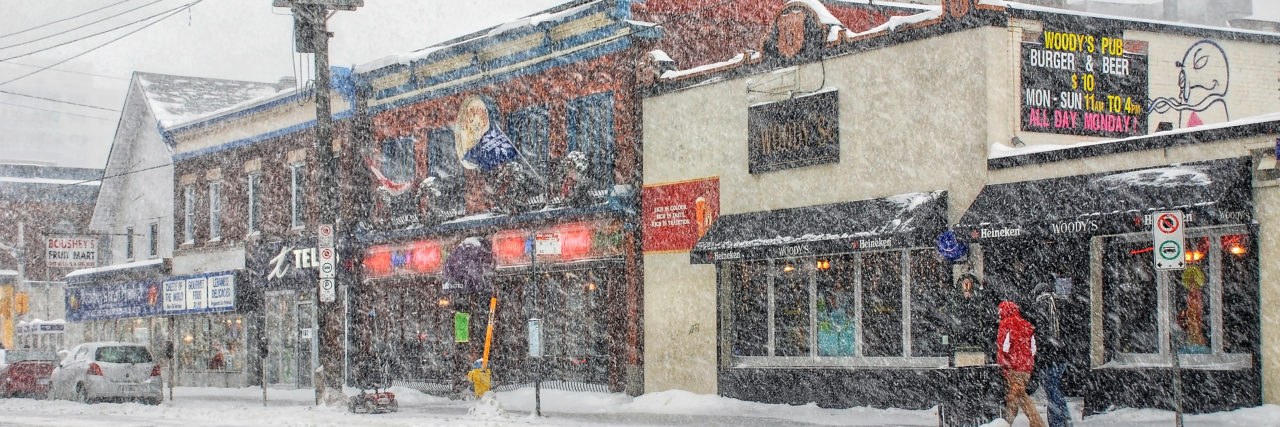This week, one record-breaking massive winter storm dumped heavy ice, snow, and frigid low and temperatures, leaving millions still without power across the Midwest, deep south, and northeast combined. Now, another winter storm is on the move, set to impact already hard-hit spots from the previous storm and sparking another round of winter storm warning, advisories, and watches issued by the National Weather Service.
Storms and power outages significantly impact disabled people and can be life-threatening. The COVID-19 pandemic adds extra complications to this impact and disaster response planning. We need to remember all disabled people when disaster planning at all phases of emergency management by identifying the needs of the community, evaluating the effectiveness of current practices and plans, preparation, notification, response, and disaster clean up. including during winter storm events and in all other disaster events (i.e., fire, hurricane, tornado, earthquake, extreme heat).
When officials fail to adequately plan and prepare communities for an upcoming weather event, such as a historic winter storm, people suffer and can experience life-threatening conditions and events. Vital medical equipment such as a ventilator and other breathing machines can lose backup power. Loss of access to heat, food, clean water, medications and personal care aides are just some of the experiences that can become life-threatening for disabled people during a winter storm disaster and prolonged power outages, especially with poor planning and preparation by officials.
These storms have caused my anxiety to become severe because of my experience during previous blizzards, especially the one in 2016 that left me stranded in my apartment within a 55+ disability community with no access to the main road for over two weeks. No one could get out or in, including emergency response personnel. It was a scary time that I had no idea how to navigate. I didn’t know what to do when my emergency medical alert system ran out of its backup power. I struggled to communicate with other people in my building when my AAC communication device I used to communicate lost power. I felt at a loss when I was unable to retrieve my medication available for pickup at the pharmacy and when I was unable to plug in my nebulizer for my breathing treatment. I struggled with hygiene issues when the hot water to the building was impacted due to frozen pipes.
This experience in my apartment building was due to a combination of improper communication by staff and the local government, snow removal zoning issues, inadequate winter storm disaster planning by the local community and officials, and lack of resources to help residents prepare beyond putting a paper notice under our door the night before the storm hit. It felt like because we were a low-income 55+ disability community, we were low on the priority list, if we were on it at all, especially after our road was still blocked by snow when the rest of the community had been dug out and was back to their schedules. Experiences like this one, and other happenings in other states, like Texas, after a devastating winter storm, can be decreased or even eliminated with adequate disaster planning.
The safety of the disability community cannot be forgotten, and we can’t automatically assume someone will take care of it. We need to ensure all disabled people have access to information, resources, and adequate power sources to keep vital medical equipment, mobility devices, and breathing machines charged. We must ensure emergency communication devices work during a natural disaster and are able to be easily accessed and used. We need to ensure all disabled people have access to needed supplies of food, water, heat, medications and other medical necessities. We need to ensure emergency personnel, caregivers, etc. can safely gain access to check on and help disabled people during and after a disaster such as a winter storm with power outages. It is essential to address the needs of disabled people as part of individual, community, and larger disaster planning preparation and disaster emergency responses.
The Americans with Disabilities Act of 1990 (ADA) says, “One of the most important roles of local government is to protect their citizenry from harm, including helping people prepare for and respond to emergencies. Making local government emergency preparedness and response programs accessible to people with disabilities is a critical part of this responsibility.” We need to hold our local, state, and federal governments accountable for including all disabled people in their disaster planning and emergency management planning because it matters, and they need to do better.
If you have a disability and are struggling to access support and services during or after a disaster, call the Partnership for Inclusive Disaster Strategies Hotline at 1-800-626-4959 for help 24 hours a day, 7 days a week.
Getty image by Paul McKinnon.

